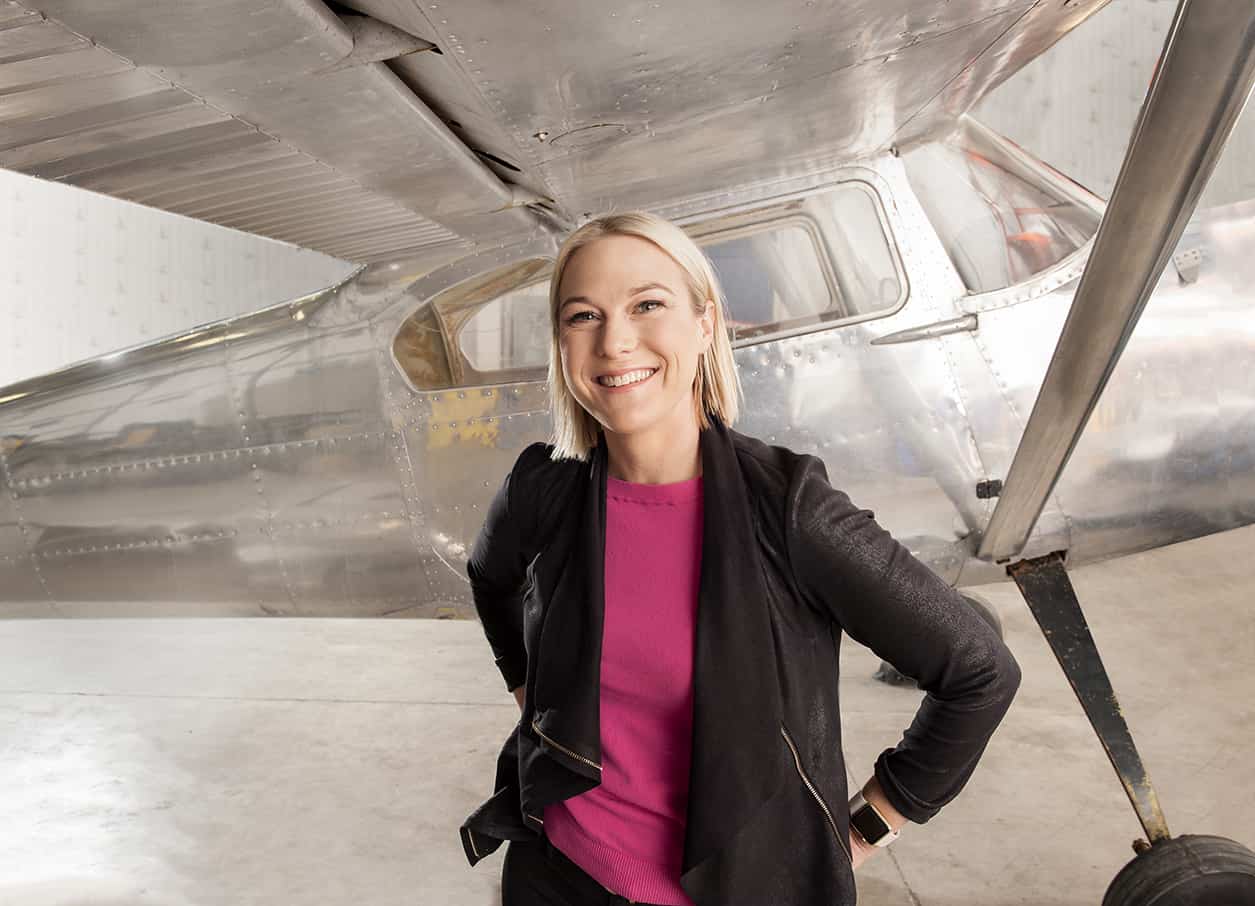Nicole Verkindt (of Dragon’s Den Nex Gen fame), is taking startup culture where it’s never been before. The president and founder of Offset Market Exchange (OMX) grew up on the factory floor of the defence industry. She translated her playground expertise into a platform for government procurement in defence, aerospace, oil & gas, mining and construction industries. Four short years later, OMX is now used by 80% of the world’s government contractors. We chatted with the prolific Verkindt this week.
SDTC: Can you walk us through a typical day in your life?
NV: Every day can be so different. I am quite “scheduled.” I don’t love it, but it’s the only way to fit everything in. Dealing with my calendar often feels like playing Tetris. My favourite days are when I get to be in the office all day. I’m a morning person, so I like to bike to work, grab a coffee and try to get ahead of the day. By late lunch time, things start to go downhill: we get into the sugar and my schedule tends to go off the rails. Friday afternoons are the best when we call it quits at 4 p.m. and everyone grabs drinks at the OMX bar (in our office).
Can you describe how OMX came to be?
My first startup was an offshore manufacturing business. We were selling to the government and I was familiar with the struggles many companies had with their supply chain and accessing opportunities. I built OMX to solve a problem we were having in my manufacturing business. I really loved (and sometimes miss) manufacturing though. There’s something about seeing progress in real time, as products move across a factory floor that is just so satisfying. Weird I know. It’s kind of like cutting the grass or cleaning your house: it gives you instant gratification.
What were the major roadblocks you experienced with OMX, and how did you overcome them?
One of the biggest roadblocks off the bat, like any startup, was raising money. My instinct was to keep pitching and holding out for one large investor to put in well over the amount we needed. No matter how many investors I pitched, we just never seemed to be able to close. We needed money to build a product and we needed a product to show traction. Still, we needed traction to raise “real capital.” So we started taking in small amounts of capital. We threw out the rules of “raising and closing one big round” and we took what we could get in small tranches from government grants, friends, family and individuals angels. Then we gradually built our product while raising little rounds of capital. In hindsight, I’m so glad we did it that way as it forced us to stay scrappy and close to the users, and also very disciplined about the money we spent and where it went. We were never able to relax, always on edge, but we most definitely got over the barrier!
What’s your advice to other young women in similar fields?
My advice is to just go for it. Ignore the naysayers and don’t let anyone clip your wings.



 Follow Us On Instagram
Follow Us On Instagram
